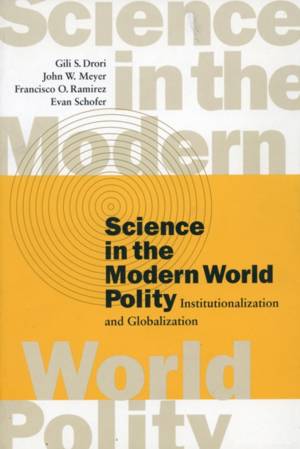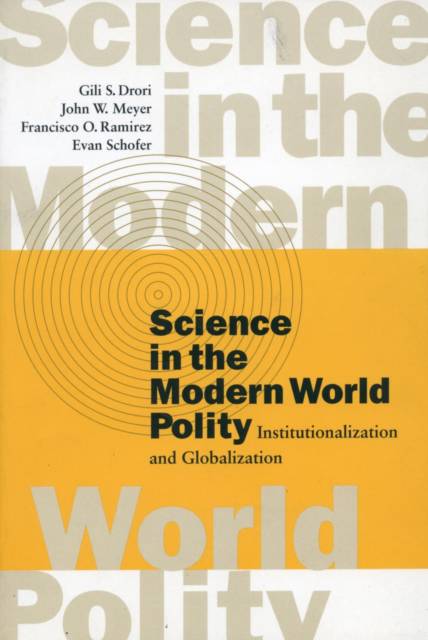
- Retrait gratuit dans votre magasin Club
- 7.000.000 titres dans notre catalogue
- Payer en toute sécurité
- Toujours un magasin près de chez vous
- Retrait gratuit dans votre magasin Club
- 7.000.0000 titres dans notre catalogue
- Payer en toute sécurité
- Toujours un magasin près de chez vous
Science in the Modern World Polity
Institutionalization and Globalization
Gili S Drori, John W Meyer, Francisco O Ramirez, Evan SchoferDescription
This book presents empirical studies of the rise, expansion, and influence of scientific discourse and organization throughout the world, over the past century. Using quantitative cross-national data, it shows the impact of this scientized world polity on national societies. It examines how this world scientific system and national reflections of it have influenced a wide variety of institutional spheres-the economy, political systems, human rights, environmentalism, and organizational reforms.
The authors argue that the triumph of science across social domains and around the world is due to its institutionalized cultural authority rather than to its instrumental utility for societies or for their dominant elites. Thus, following the Stanford approach to institutional theory in sociology, the book emphasizes the symbolic or religious role science plays in the modern world.
Spécifications
Parties prenantes
- Auteur(s) :
- Editeur:
Contenu
- Nombre de pages :
- 400
- Langue:
- Anglais
Caractéristiques
- EAN:
- 9780804744911
- Date de parution :
- 06-12-02
- Format:
- Livre relié
- Format numérique:
- Genaaid
- Dimensions :
- 167 mm x 239 mm
- Poids :
- 644 g

Les avis
Nous publions uniquement les avis qui respectent les conditions requises. Consultez nos conditions pour les avis.






